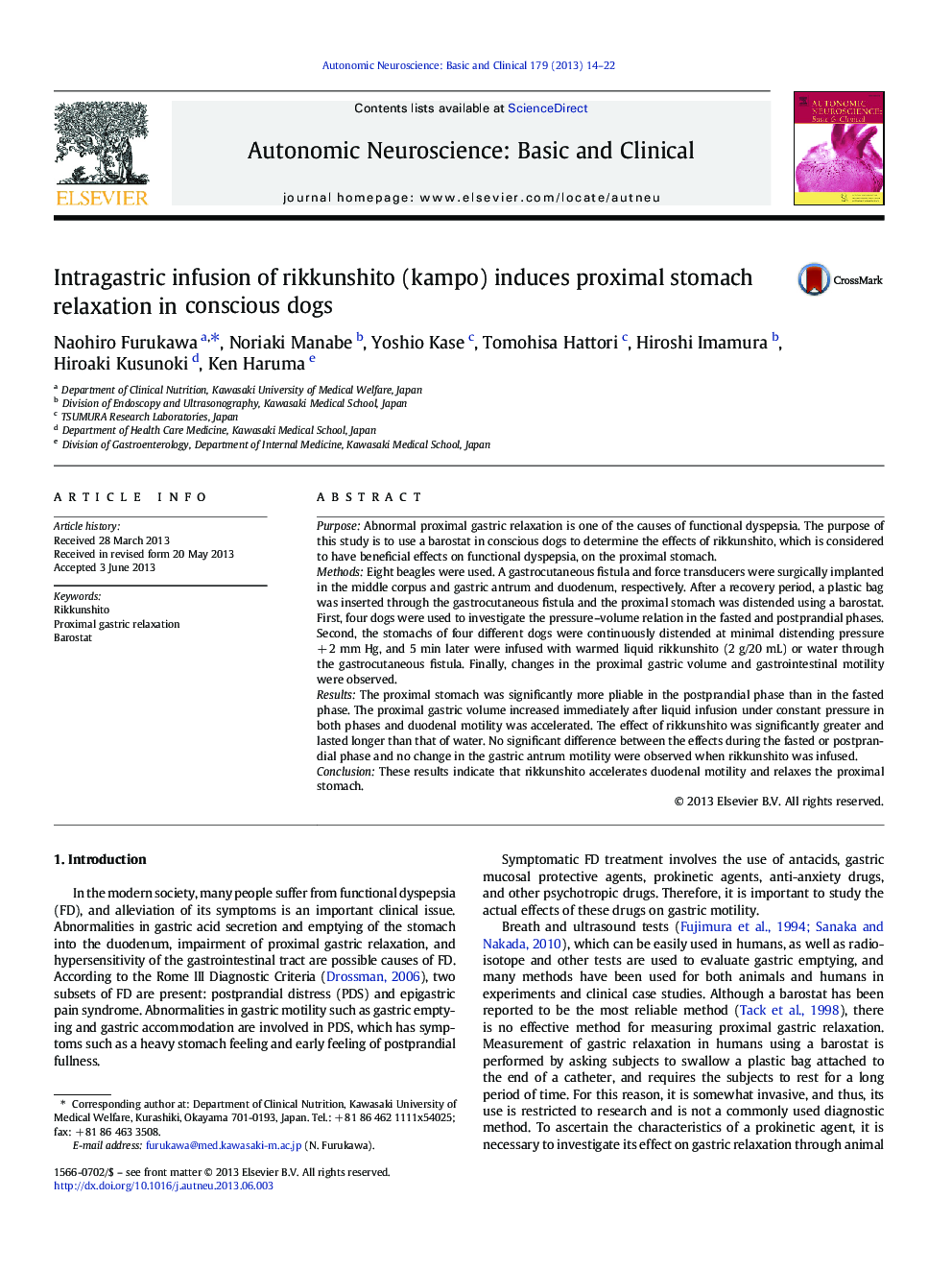| Article ID | Journal | Published Year | Pages | File Type |
|---|---|---|---|---|
| 6004082 | Autonomic Neuroscience | 2013 | 9 Pages |
PurposeAbnormal proximal gastric relaxation is one of the causes of functional dyspepsia. The purpose of this study is to use a barostat in conscious dogs to determine the effects of rikkunshito, which is considered to have beneficial effects on functional dyspepsia, on the proximal stomach.MethodsEight beagles were used. A gastrocutaneous fistula and force transducers were surgically implanted in the middle corpus and gastric antrum and duodenum, respectively. After a recovery period, a plastic bag was inserted through the gastrocutaneous fistula and the proximal stomach was distended using a barostat. First, four dogs were used to investigate the pressure-volume relation in the fasted and postprandial phases. Second, the stomachs of four different dogs were continuously distended at minimal distending pressure + 2 mm Hg, and 5 min later were infused with warmed liquid rikkunshito (2 g/20 mL) or water through the gastrocutaneous fistula. Finally, changes in the proximal gastric volume and gastrointestinal motility were observed.ResultsThe proximal stomach was significantly more pliable in the postprandial phase than in the fasted phase. The proximal gastric volume increased immediately after liquid infusion under constant pressure in both phases and duodenal motility was accelerated. The effect of rikkunshito was significantly greater and lasted longer than that of water. No significant difference between the effects during the fasted or postprandial phase and no change in the gastric antrum motility were observed when rikkunshito was infused.ConclusionThese results indicate that rikkunshito accelerates duodenal motility and relaxes the proximal stomach.
